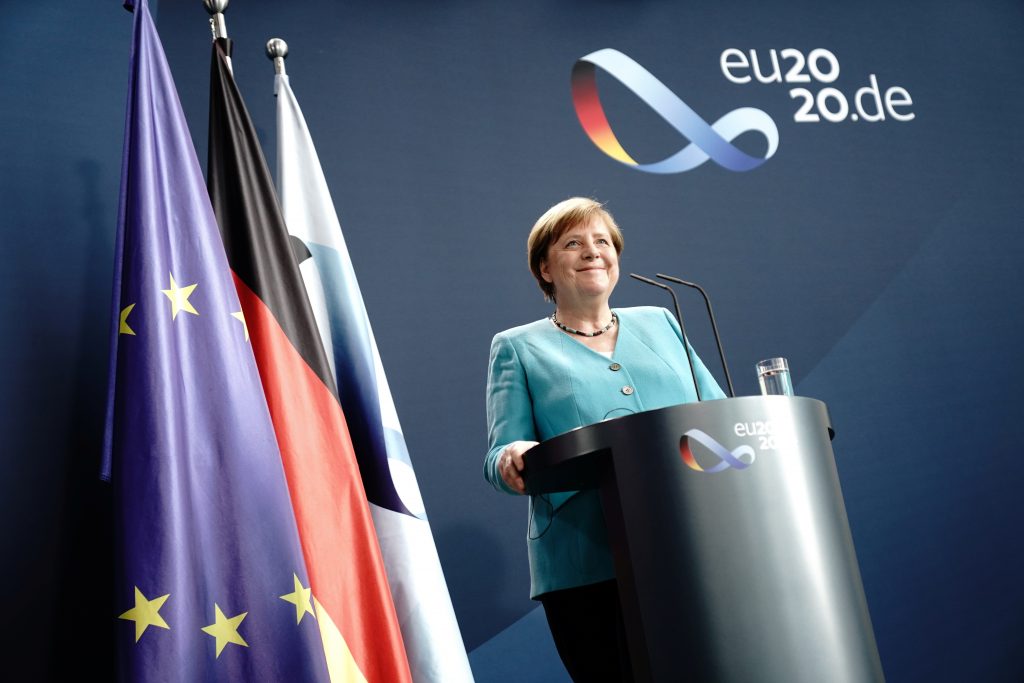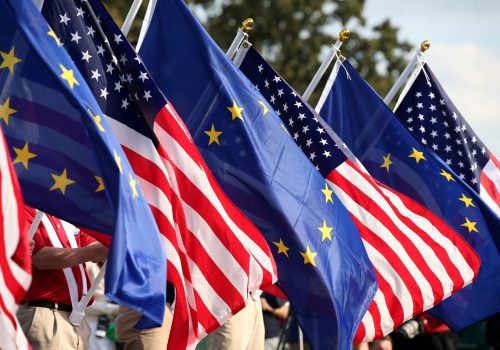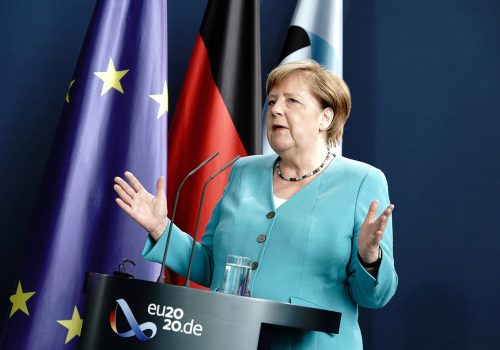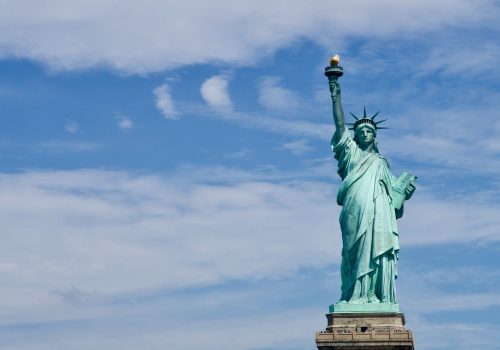History rarely provides major countries and their leaders the enormity of the second chance that Germany and Chancellor Angela Merkel now enjoy as they begin their six-month European Union presidency.
For Germany, the drama is one of epic dimensions. Can the country that has been at the source of so much European devastation through two world wars, resulting in lost territory and Cold War division, steady the EU through this historic test of a public-health crisis, economic recession and rising U.S.-Chinese tensions?
For Angela Merkel, who held the rotating EU presidency once before in 2007, it’s a last shot at a historic legacy. Can Germany’s first and only woman chancellor, who has recharged her waning standing during the coronavirus pandemic, demonstrate the leadership required to unify and shape Europe that her critics say eluded her during almost 15 years in power?
Get the Inflection Points newsletter
Subscribe to Frederick Kempe’s weekly Inflection Points column, which focuses on the global challenges facing the United States and how to best address them.
These aren’t academic questions.
“How Europe fares in this crisis compared to other regions of the world will determine both the future of European prosperity and Europe’s role in the world,” Chancellor Merkel told the Bundestag, Germany’s parliament, as she assumed the EU presidency.
This week, in her first trip outside Germany since the coronavirus lockdown, she made clear the stakes stretched far beyond COVID-19. “Nobody makes it through this crisis alone,” she said. “We are all vulnerable.”
Those who know Merkel best say that what drives the uncharacteristic urgency and decisiveness of Merkel’s messages is a fear that the EU could become irrelevant or even unravel from the force of COVID-19 and its economic, social and political aftereffects. She understands the challenges for the EU are of a more existential nature than those facing China, the United States or any other single country, coming even as the United Kingdom exits the Union.
China and the U.S. will emerge from the ravages of 2020 with their borders and political systems intact, yet the 27 EU members confront more fundamental questions as their citizens weigh the value EU membership has brought them in the crisis.
“We can’t allow ourselves to be naïve,” Merkel told the European Parliament this week. “In many of the member states the opponents to Europe are waiting only to misuse this crisis for their own purposes.”
Chancellor Merkel’s efforts will come to a head next Saturday, July 17, at a special EU leaders’ summit to discuss the coronavirus recovery plan and a long-term EU budget. Never has Germany supported, as Chancellor Merkel is doing now, the pooling of national debt to help harder-hit parts of Europe.
It will be a test of her leadership, beside French leader Emmanuel Macron and other EU leaders, whether she can convert a group of skeptics known as “the frugal four” – Austria, Denmark, the Netherlands and Sweden – who have resisted the scale and makeup of the $850 billion recovery plan.
Yet even as that story unfolds, Germany at the same time is at the center of an unfolding global drama. At its heart is the danger of a strategic transatlantic decoupling – highlighted in this space two weeks ago – that would alter 75 years of history.
Will Germany continue to define itself first and foremost as a strategic partner and ally of the United States? Or will it tilt more toward an alignment with China and Russia due to growing economic lures, in the first case, and geographic proximity and energy interests, in the latter? Or will it, and thus Europe, instead free float among powers in the pursuit of “strategic autonomy,” a situation unlikely to result in a more peaceful and integrated Europe?
European attitudes toward the United States have shifted dramatically downward during the COVID-19 crisis. A new poll commissioned by the European Council on Foreign Relations showed that in Denmark, Portugal, France, Germany and Spain around two-thirds of people surveyed said their view of the U.S. had grown worse.
In Germany, the mood soured further after President Trump’s announcement on June 15, without prior consultation with Berlin, that the U.S. plans to withdraw 9,500 of its 34,500 troops from Germany, even as the U.S. weighs $3.1 billion in new trade sanctions on Europe.
Chancellor Merkel’s friends privately share that she believes it is President Trump’s spite, more than anything else, that lay behind the timing and nature of his troop-withdrawal announcement, following her decision not to physically attend a G-7 meeting that the president had hoped to schedule in Washington this month.
Some German officials have cast doubt on whether even the possible election of former Vice President Joe Biden in November would alter this trajectory. “Everyone who thinks everything in the trans-Atlantic partnership will be as it once was with a Democratic president underestimates the structural changes,” German Foreign Minister Heiko Mass told the German press agency DPA this week.
Chancellor Merkel has made relations with Beijing a cornerstone of her EU presidency, and her country’s manufacturing base has come increasingly to depend on the Chinese market. German exports to China have risen more than fivefold since Merkel took over as chancellor in 2005 to more than $125 billion, making it the country’s number-one market. The United States stood at number three at some $78 billion. A full third of China’s trade with the EU is transacted with Germany.
Most Europeans blame President Trump’s punitive trade policy and the tone of his tweets for the current threat of transatlantic decoupling. They see his distaste for the EU as evidence that Washington would prefer European disunity. For some, it seems as though Merkel has no other choice than embracing China.
Yet for Germany and Merkel, the promise of this second chance at leadership can only be fulfilled if she at the same time works to limit the erosion in transatlantic relations and ultimately restore European relations with the United States.
Germany is unified today because Merkel’s predecessor Helmut Kohl understood that his European and transatlantic aspirations reinforced each other. Difficult as it may seem at the moment for Chancellor Merkel to navigate both, it is the only course that can ensure her legacy and Germany’s hopes for European resilience and unity.
This article originally appeared on CNBC.com
Frederick Kempe is president and chief executive officer of the Atlantic Council. You can follow him on Twitter @FredKempe.
THIS WEEK’S TOP READS
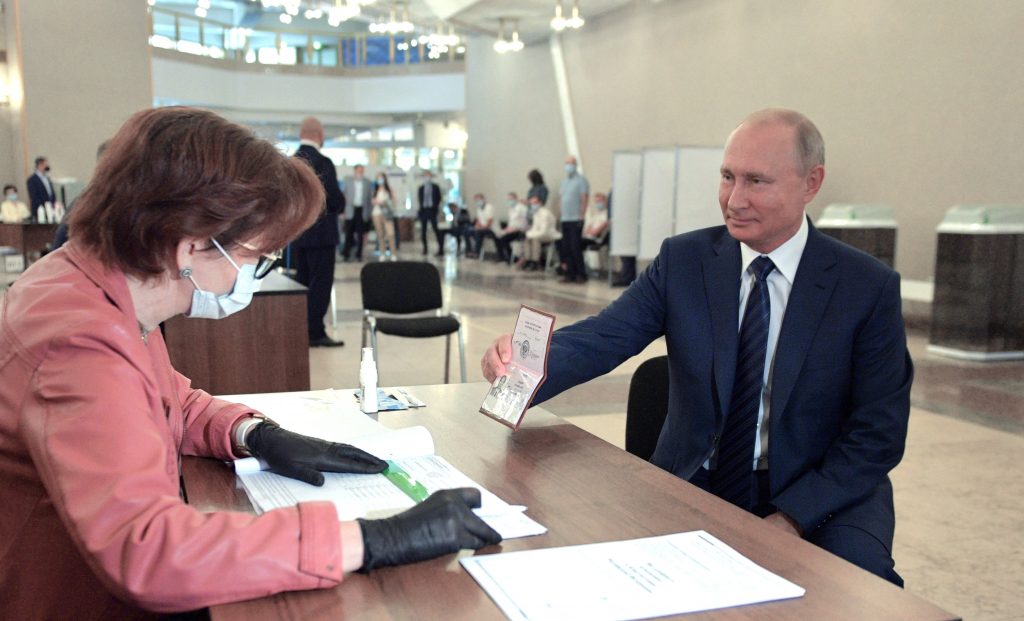
This week’s top reads include Matt Karnitschnig’s deeper look in Politico at Chancellor Merkel’s relations with China as Lufthansa flights to Shanghai resume and Andrew Michta’s look in The American Interest at why it will have to be European leaders who save transatlantic relations. In Foreign Affairs, Michael Green and Evan Medeiros study how insufficient Western response over Hong Kong could encourage China to move on Taiwan, and Konstantin Eggert signals “the twilight” for Putin in Russia despite a referendum that could allow him to rule through 2036, when he will be 84.
Also, don’t miss the results of the Financial Times’ six months of reporting on the implosion of the German fintech company Wirecard and the disappearance of its mysterious leader, 40-year-old Austrian Jan Marsalek, a key suspect in a vast fraud.
#1. MERKEL’S NEW “OSTPOLITIK”
Merkel looks east as ties fray between Germany and US
Matthew Karnitschnig / POLITICO
Any student of Germany’s Cold War history knows the term “Ostpolitik,” policies launched in 1969 whose goal was the normalization of relations between West Germany and, particularly, East Germany, along with the rest of Soviet-controlled Eastern Europe.
It’s now time to start studying what I’m calling the “new Ostpolitik” of Chancellor Merkel toward China, captured well in Matt Karnitchnig’s attached Politico piece.
One outcome of COVID-19 may be an even greater reliance of Germany on its economic relations with China, which inevitably will influence the European Union’s approach. What’s clear is that Germany and the EU will do everything possible to protect commercial relations with China which has made the country of “strategic importance,” in Merkel’s words. Read More →
#2. EUROPE MUST LEAD TRANSATLANTIC RENEWAL
Renewed Transatlanticism or a Post-American Europe?
Andrew A. Michta / THE AMERICAN INTEREST
Writing in The American Interest, Andrew Michta traces the series of strategic shifts since the Cold War’s end that have prompted the weakening of “transatlanticists” in Europe – which he numbers at fewer than half of the elites – and the cohort that either leans toward Russia or “sees China as the promised land of future economic expansion.”
“Can we reverse the slide?” he asks. “I think we can, but with an important caveat … NATO’s future will be decided in Europe … Whether Europe remains Transatlanticist or becomes ‘post-American’ depends on Europe’s leaders.” Read More →
#3. TAIWAN IS WHY HONG KONG MATTERS
Is Taiwan the Next Hong Kong?
Michael Green and Evan Medeiros/ FOREIGN AFFAIRS
One of the biggest mistakes American and European officials can make is failing to see the connection between Chinese leader Xi Jinping’s crackdown in Hong Kong and its designs on Taiwan.
“Given how little Beijing’s crackdown in Hong Kong has cost it to date, we are concerned that Beijing will draw the wrong conclusions about the costs of future coercion against Taiwan,” write Michael Green and Evan Medeiros in Foreign Affairs.
The authors provide a must-read reflection on President Xi’s “appetite for risk, tolerance for conflict and desire to assert territorial claims.” They warn that “the United States must be careful not to play a narrow game on Hong Kong when Beijing is positioning itself for a broader competition for the future of Asia.” Read More →
#4. PUTIN’S “TWILIGHT?”
Vladimir Putin vs. “Citizen No”
Konstantin Eggert / THE AMERICAN INTEREST
The danger of all the world’s attention on China is that so little attention was paid to the recent Russian referendum that has given Vladimir Putin the capability to stay on as President until 2036, when he would be 84 years old, in full control of all branches of power.
Despite that, Konstantin Eggert’s piece in The American Interest provides an encouraging possibility that “beneath the surface, cracks are widening, and discontent is growing… more and more Russians are simply tiring of Putin.”
That’s a long way from regime change, but Eggert writes: “This is Putin’s twilight. Behind the pomp and circumstance of the military parades and bravura TV reports there remains a poor, disheartened country, afflicted by corruption and brain drawn, saddled by a rapacious and unaccountable bureaucracy which increasingly relies on brute force to remain in control.” Read More →
#5. THE UNFINISHED WIRECARD MYSTERY
From payments to armaments the double life of Wirecard’s Marsalek Sam Jones, Paul Murphy and Helen Warrell / FINANCIAL TIMES
I can’t get enough of reading well-woven stories of international business intrigue, and none gets better than the tale of 40-year-old Austrian fintech champion Jan Marsalek, who vanished even as his Munich-based company Wirecard imploded.
“The missing suspect in one of Germany’s biggest financial frauds worked on secretive projects that took him into conflict zones, talked of assembling a Libyan militia and bragged of adventures with Russian troops,” reads the introductory headline to their article.
A group of FT reporters spent six months reconstructing the Marsalek story, the rich tale of a man who was described as liking only one thing more than secrets and surreptitious activity – and that was telling people about them. At the end of this yarn, one is left wanting to know more about this unfinished story. Read More →
QUOTE OF THE WEEK
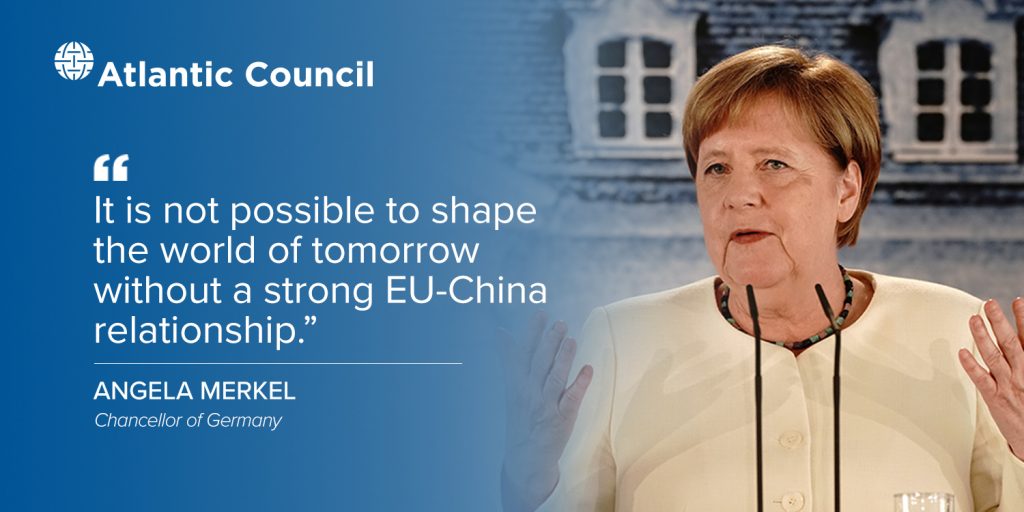
ATLANTIC COUNCIL TOP READS
Image: German Chancellor Angela Merkel and the head of the European Commission, Ursula von der Leyen, hold a joint news conference via video conference to mark Berlin taking over the EU's rotating presidency from July 1 until the end of the year, in Berlin, Germany, July 2, 2020. Kay Nietfeld/Pool via Reuters
